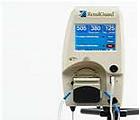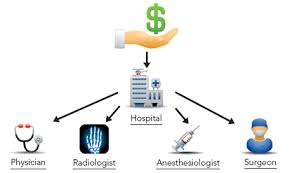(This post was originally published in the Patients Helping Patients Blog of the Patient Empowerment Network)
Sometimes hospitals, research centers and pharmaceutical companies will cover the cost of treatment in a clinical trial. However, if the treatment is experimental or investigational, a patient may not receive insurance coverage. Insurance companies generally will cover what is considered the standard of care for a disease.
(This post was originally published in the Patients Helping Patients Blog of the Patient Empowerment Network)
Sometimes hospitals, research centers and pharmaceutical companies will cover the cost of treatment in a clinical trial. However, if the treatment is experimental or investigational, a patient may not receive insurance coverage. Insurance companies generally will cover what is considered the standard of care for a disease.
The Patient Advocate Foundation
The Patient Advocate Foundation: In its ‘Guide to Clinical Trials’ the PAF devotes a section to insurance coverage.
PAF also provides a state-by-state financial resource guide. It’s a very user-friendly site. A patient can plug in his/her state and specific financial need or multiple needs to find assistance programs.
Medicare and National Cancer Institute
Both Medicare and the National Cancer Institute provide information on Medicare coverage for clinical trials. Medicare will cover the cost of a trial to diagnose and treat cancer.
1–800–633–4227 (1–800–MEDICARE)
1–877–486–2048 for hearing impaired
NCI fact sheet on Medicare coverage for clinical trials:
Also from NCI for non-Medicare patients:
Appealing After a Rejected Claim
Sometimes an insurance company will reject a claim for routine tests like blood work (CBC or Complete Blood Count) or an X-ray or CT scan because they’re being done to monitor an “experimental/investigational” treatment rather than standard-of-care treatment. Patients will want to stay in close contact with their physician to receive assistance in the appeals process.
If coverage is rejected, this website can help you navigate the appeals process
Federal Financial Assistance Programs
Beneficiaries of TRICARE, the Department of Defense’s health program, can be reimbursed for the medical costs of participation in NCI-sponsored Phase 2 and Phase 3 cancer prevention (including screening and early detection) and treatment trials:
The VA, Dept. of Veterans Affairs also has an agreement with the NCI:
The NCI/VA Agreement on Clinical Trials: Questions and Answers
Other Organizations That Can Help
While the cost of diagnosis and treatment for clinical trials often is covered, related services may not be covered. There are organizations that can help.
CancerCare
CancerCare provides small grants to people with many types of cancer.
1-800-HOPE (4673) to speak with a CancerCare social worker to learn if you are eligible. The Social Worker will walk you through the process on how to apply for assistance.
Funds are available for transportation, home care, child care as well as pain and anti-nausea medication, oral hormonal medication, lymphedema supplies and durable medical equipment for:
- Women with all diagnoses
- Men and women with breast cancer
- Children with all diagnoses
- Men and women with pancreatic cancer
- Men and women with multiple myeloma (transportation only)
- Men and women with all types of metastatic non small cell lung cancer, including squamous cell (transportation only)
- Men and women with metastatic melanoma (transportation only)
- Men and women with all diagnoses residing in San Diego and Imperial counties, CA.
- Men, women and children with all diagnoses in New York City, Long Island, Westchester and Rockland Counties in New York, New Jersey and Connecticut
CancerCare eligibility requirements:
- have a diagnosis of cancer confirmed by an oncology health care provider
- be in active treatment for your cancer
- live in the U.S. or Puerto Rico
- meet eligibility guidelines of 250% of the Federal Poverty Limit (view chart)
If CancerCare cannot provide the funds, the organization’s social workers can refer a patient to other resources, including state and state-run financial assistance programs.
Avon Foundation
Women with breast cancer can find financial help for clinical trial-related expenses.
Susan G. Komen
The Komen Foundation is providing generous grants through PAF, the Patient Advocate Foundation, for women with breast cancer. Patients needing assistance can call (855) 824-7941 or learn more about the eligibility guidelines at www.patientadvocate.org/gethelp
AACR
AACR, The American Association of Cancer Research, is an excellent, comprehensive resource to learn about financial assistance and resources. On the AACR site, patients can link to many organizations to help with practical support, e.g. non medical expenses, like transportation, hotels, wigs and so on.
LLS
Leukemia and Lymphoma Society for all blood cancers: LLS works with CFAC, Cancer Financial Assistance Coalition
Linda Creed Breast Cancer Foundation
Will help with non-medical expenses
Oklahoma Brain Tumor Foundation
MyMultipleMyeloma
Multiple Myeloma website provides a one-stop shop list of links to financial resources, many of which are listed on these pages.
For more information about clinical trials, please visit our FAQ page








